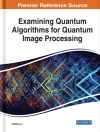This book focuses on software sustainability, regarded in terms of how software is or can be developed while taking into consideration environmental, social, and economic dimensions. The sixteen chapters cover various related issues ranging from technical aspects like energy-efficient programming techniques, formal proposals related to energy efficiency measurement, patterns to build energy-efficient software, the role of developers on energy efficient software systems and tools for detecting and refactoring code smells/energy bugs; to human aspects like its impact on software sustainability or the adaptation of ACM/IEEE guidelines for student and professional education and; and an economics-driven architectural evaluation for sustainability. Also aspects as the elements of governance and management that organizations should consider when implementing, assessing and improving Green IT or the relationship between software sustainability and the Corporate Social Responsibility of software companies are included. The chapters are complemented by usage scenarios and experience reports on several domains as cloud applications, agile development or e-Health, among others. As a whole, the chapters provide a complete overview of the various issues related to sustainable software development.
The target readership for this book includes Cx Os, (e.g. Chief Information Officers, Chief Executive Officers, Chief Technology Officers, etc.) software developers, software managers, auditors, business owners, and quality professionals. It is also intended for students of software engineering and information systems, and software researchers who want to know the state of the art regarding software sustainability.
สารบัญ
1. Introduction to Software Sustainability.- 2. Criteria for Sustainable Software Products: Analyzing Software, Informing Users, and Politics.- 3. GSMP: Green Software Measurement Process.- 4. FEETINGS: Framework for Energy Efficiency Testing to Improve e Nvironmental Goals of the Software.- 5. Patterns and Energy Consumption: Design, Implementation, Studies, and Stories.- 6. Small Changes, Big Impacts: Leveraging Diversity to Improve Energy Efficiency.- 7. Tool Support for Green Android Development.- 8. Architecting Green Mobile Cloud Apps.- 9. Sustainability: Delivering Agility’s Promise.- 10. Governance and Management of Green IT.- 11. Sustainable Software Engineering: Curriculum Development Based on ACM/IEEE Guidelines.- 12. The Impact of Human Factors on Software Sustainability.- 13. Social Sustainability in the e-Health Domain via Personalized and Self-Adaptive Mobile Apps.- 14. Human Sustainability in Software Development.- 15. The Importance of Software Sustainability in the CSR of Software Companies.- 16. Sustainability Arch Debts: An Economics-Driven Approach for Evaluating Sustainable Requirements.
เกี่ยวกับผู้แต่ง
Coral Calero is Full Professor at the Escuela Superior de Informática (University of Castilla-La Mancha, Spain). She is a member of the Alarcos Research Group and the coordinator of the software sustainability research. She is the author of papers in major conferences such as ICWE, WISE, CAISE, WICSA, as well as in journals about information systems, software engineering or database technologies.
Mª Ángeles Moraga is Associate Professor at the Escuela Superior de Informática (University of Castilla-La Mancha, Spain). Her main research lines focus on the quality of software products and software sustainability. All her research has been carried out as a member of the Alarcos Research Group. She is currently the PI of a Green IT project and had participated as a researcher in international as well as several national projects.
Mario Piattini is Director of the Alarcos Research Group at UCLM. He is the Founder of DQTeam, S.L. and AQC Lab, S.L., spinoffs of the UCLM. He was ranked among the 15 “Top scholars in the field of systems and software engineering (2004-2008)” and the 15 “Most active experienced Software Engineering researchers in top-quality journal (2010-2017)”according
The Journal of Systems and Software.












